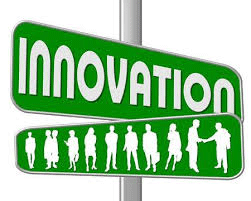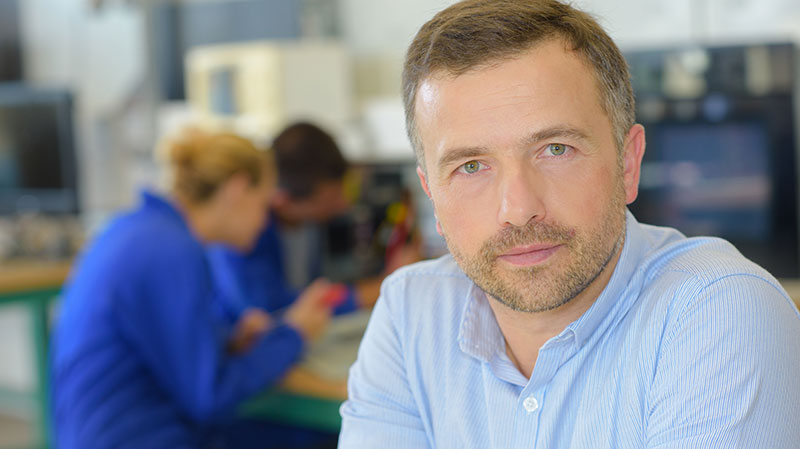
Innovation is vital because it’s the only way you can reliably achieve profitable growth. And profitable growth is the chief objective of every CEO. You’ve got to have profit—that goes without saying. But profit is not enough. You also need growth. In a dynamic competitive landscape, the company that’s not growing is on its way to irrelevance.
There are really only two ways to grow.
- You can grab a bigger slice of the pie by stealing business from the competition. It’s fun, if you can do it. But it’s not easy.
- You can grow the pie. Innovation in products and services may do both. Innovative products and services can grow the market. They can grow the pie. And innovative products and services can also snare your competitor’s customers and enlarge your piece of the pie.
In addition, process innovation can grow your profitability, because it means you’re running your business more effectively.
Less time. Less scrap. Less friction. Less cash consumed. More cash remaining. More to the bottom line. That’s wealth.
It’s the job of the CEO to create wealth. It’s the job of the CEO to drive innovation. Your CEO cares deeply about innovation, and so should you.
What Really Drives Innovation?
There are lots of books and articles written about innovation, and I’ve read many of them. Few seem to capture the primary lesson that that’s revealed by innovation research: expertise, more than any other factor, determines your ability to innovate.
This doesn’t seem like much of an insight, but it must not be that obvious because so many books on innovation gloss over or completely ignore the role of expertise. Instead, they focus on getting the right culture, recruiting diverse teams, implementing gate reviews and process metrics, taking risk, and celebrating failure. A lot of what’s written about innovation, in my estimation, misses the mark.
Look, there’s no such thing as the perfect culture to drive innovation. Even if there was a perfect innovation culture, it wouldn’t guarantee innovation. The power of team diversity is over-rated. In fact, diversity may work against you. And go ahead, use gate reviews, take risks, celebrate failure, and do a great job measuring everything. Good luck. It doesn’t mean you’ll innovate.
But if you do nothing other than assemble a handful of engaged experts—I’m talking about true experts—you’ve at least got a shot at innovation.
Above All, Innovation Requires Expertise
We can all cite accidental discoveries that have launched groundbreaking innovations. But if we’re serious about innovation, we can’t wait for accidents. We have to be intentional about it, and that means we need experts.
Experts have the ability to see anomalies that others don’t. They see similarities others miss. They see connections that are invisible to non-experts. They see patterns. Those patterns and connections are the basis of innovation. Innovation comes from the connections experts see between patterns.
The first step to becoming intentional about innovation is to understand experts and the nature of expertise.
- Experts are passionate about their discipline. They are more than highly interested. They are more than hobbyists. Experts are focused, obsessive, and single-minded in a way that’s nearly incomprehensible to the non-expert. They are driven to study, think, experiment, and to develop their own unique point of view that is the result of their own work. Ownership is important to them. They cultivate their passion and fiercely guard their expertise because they’ve invested so much in it. They own it. In fact, that largely explains why they are so passionate. Their passion builds as their expertise builds.
- Experts have a vast amount of experience. The passion of experts leads them to spend more quality time working in their discipline. The 10,000-hour rule was identified in research years ago and popularized more recently by Malcolm Gladwell. The point is that, although there are ways to accelerate and enhance the value of experience, there is really no way to get around the sizable investment in time required to develop expertise. A true expert in any recognized discipline—chess player, diesel mechanic, or physician—has paid their dues.
- The nature of an expert’s experience is different. It’s not just that experts have more experience, there’s a qualitative difference in their experience. They practice differently. It’s more focused, more intentional, more mindful. It leads the expert musician player to play the same four bars of difficult music over and over and over again until it’s more than perfect, until it’s natural. As martial artist Bruce Lee said, “I fear not the man who has practiced 10,000 kicks once, but I fear the man who has practiced one kick 10,000 times.”
- An expert’s motives are different. They are achievement-oriented, but the way they define achievement is different from others. More than anything else, they are motivated by being an expert. They love to have answers that others don’t. They love to be in demand for what they know. That’s not to say that experts don’t have other motivators. They may value autonomy, money, power, security, or affiliation, for instance. But above all, they long to breathe the rare air that only true experts breathe when they reach the pinnacle of their profession.
Of course, expertise is not the only driver of innovation. Innovation requires teamwork, and creating the right team environment for experts is essential. Innovators need resources, and are best served by an organizational culture that is informal, promotes a high degree of approachability between all players, and fosters constructive dissent.
Reference: Lessons from a CEO’s journal, Kim E Ruyle, 2014




